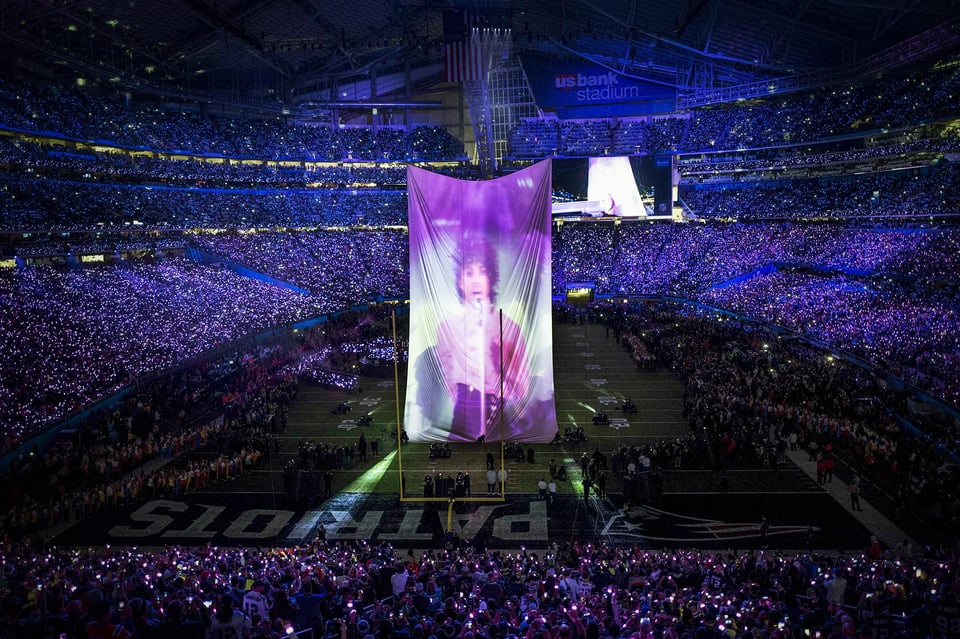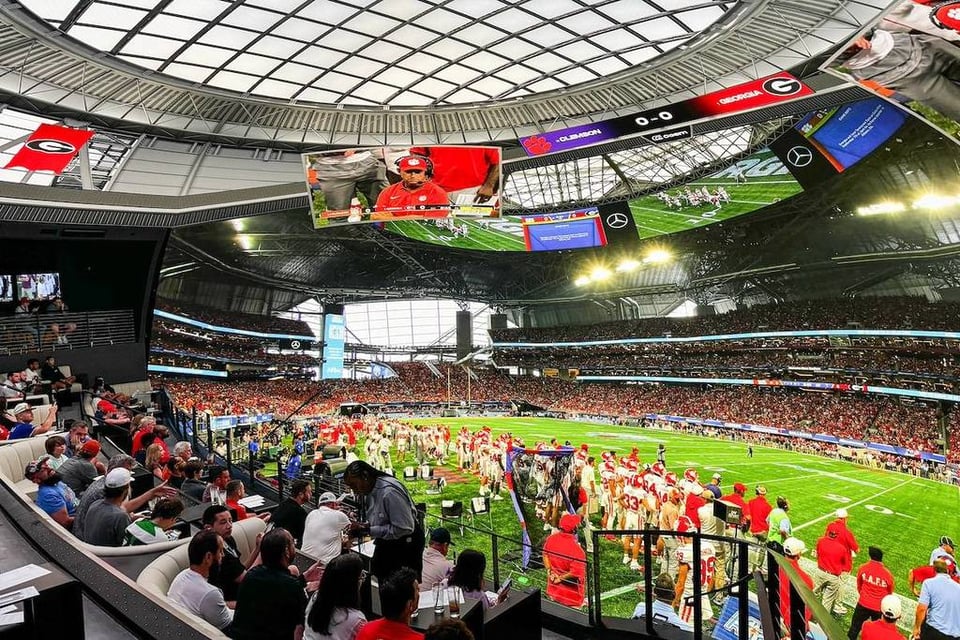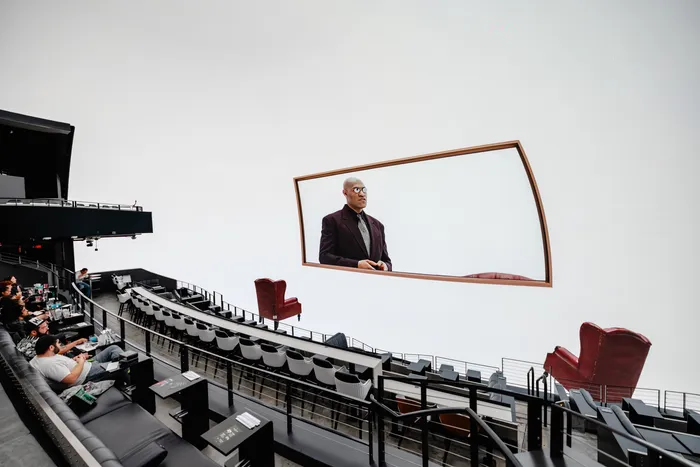Two weeks ago, I linked to Anthony Oliveira’s article A Trick of the Light. It came to mind, as I said at the time, because of the horrifying spectacle of a CNN “interview” with an AI avatar of one of the victims of the Parkland shooting, Joaquin Oliver.
Oliveira wrote his piece six years ago in response to the announcement that a hologram of Whitney Houston would be going on tour, a concert experience that the Guardian referred to as a ghoulish cash-in. Oliveira asked:
What right, if any, does a person have to a 'Do Not Simulate' clause? To what extent, if any, can stipulation be made about what can and cannot be done with one’s image? What obligation, if any, do we have to the facts of history?
This week, I went to see ABBA Voyage. If you haven’t seen or heard of this, it’s a purpose-built arena in London where astounding digital “ABBAtars” perform a full concert. It was made with the full involvement and commitment of the legendary supergroup. Thousands of animators, together with the magicians at Industrial Light & Magic, brought to life motion capture filmed of Agnetha Faitskog, Bjorn Ulvaeus, Benny Andersson, and Anni-Frid Lyngstad.
Occasionally there’s something a little dead-eyed about Bjorn, but overall it’s absolutely jaw-dropping. The way the costumes move, the incredible lighting and effects, and the powerhouse live musicians, all contribute to an experience that is as good (if not better) than a “live” concert.
At the same time, also in London, the Elvis Evolution has been called “this summer’s Willy Wonka Experience”, with audiences booing Youtube footage projected on a large screen at a cost of £300 for some tickets.
What does it mean to see something live in an era of deep-fakes and AI avatars? Do artists need to tour anymore if they can send digital versions of themselves out on the road? What makes the ABBAtars magical and the Whitney hologram depressing?
Prince saw this coming before the technology even existed, saying:
"That's the most demonic thing imaginable. Everything is as it is, and it should be. If I was meant to jam with Duke Ellington, we would have lived in the same age. That whole virtual reality thing... it really is demonic. And I am not a demon," he said. "Also, what they did with that Beatles song ["Free As a Bird"], manipulating John Lennon's voice to have him singing from across the grave... that'll never happen to me. To prevent that kind of thing from happening is another reason why I want artistic control."
It didn’t stop Justin Timberlake apparently planning to have a Prince hologram perform on stage with him at the Superbowl half-time show, though fan backlash seemed to result in his image being projected on a bedsheet instead.

To me, it seems clear that there’s a difference between artists who are still with us — who give their input and consent, and in ABBA’s case pour their heart and soul into making the experience the best it can possibly be — and artists who have passed away and have no say in the use (or misuse) of their image.
But as the technology gets better and better, what does this mean for what we think of as a “live” performance?
meriko introduced me to Cosm, a company in the US that is building essentially smaller versions of The Sphere that enable the hosting of live sporting events in a digital environment so good, it’s like being there. If you watch Welcome to Wrexham, you’ll have seen Rob Mcelhenny watching Wrexham games from Cosm in the US.

Cosm calls this “shared reality” — elevating what it means to watch a live event in a sports bar to something that mimics the experience of being in the stadium itself. It’s also something that I find fascinating in the context of the accessibility of live events. As someone who became an ice hockey fan during the pandemic and is still yet to see her fave disaster birds the Penguins play live, the idea that I could watch them in this way, even from the other side of the world, is really exciting.
Cosm is now doing this with other kinds of performances — Cirque du Soleil, and a version of The Matrix that spills out from the cinema screen.

This idea of digital and live "sharing” space is super-interesting. Last week I went to this summer’s Secret Cinema peformance of Grease. It’s a mind-blowing combo of a fully immersive set (the Rydell school fair, the drive-in, the Frosty Palace, the National Bandstand dance floor) and live performers accompanying the movie projected on giant screens all around the venue.

Neither movie nor musical but the perfect combo of both. Pushing the boundaries of how we experience entertainment can have soul and heart (and be available to more people) when it’s a collaboration between technology and humanity. When that’s absent — a hologram conjured without permission, a flat “immersive” art show that feels like a screensaver — when the intention is just profit, the experience will always feel hollow.
So maybe the real question isn’t whether a performance is “live” or not, but whether it feels alive. That’s much harder to quantify, but ultimately much more important.
more good stuff
I interviewed Dame, the conceptual artist and the brains behind a range of awesome ATProto projects, for the Graze newsletter. This week they launched Anisota: a new experimental way to look at your social media feed, where posts appear as cards, but you also get to collect ingredients and items within the broader context of a game. I absolutely adore the way new social infrastructure lets us try genuinely new things.
TV shows I watched as a kid are somehow deeply lodged in my brain and the news that Loni Anderson passed away this month made me think about her on WKRP in Cincinnati— a show that for some reason I can still sing the theme tune for. Anyway, Jon Nelson has completed an incredible film project, taking every clip of Dr Johnny Fever on air, finding the songs he intro’ed, and reconstructing a three-hour radio show.

rip loni Jodi Ettenberg writes a great newsletter (substack, unfort), but I discovered recently that she also maintains this great page of resources for people thinking about leaving the law. As a recovering lawyer, I approve.
finally, in my lego city

Forward this email to someone who likes ABBA.
You just read issue #34 of what you love matters. You can also browse the full archives of this newsletter.

Add a comment: